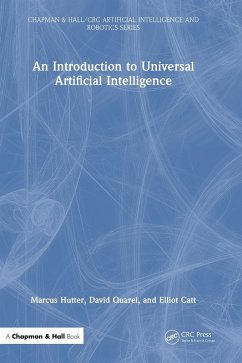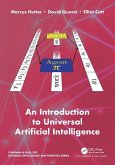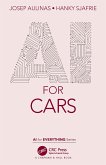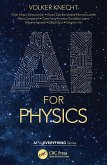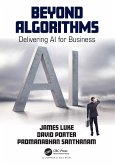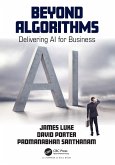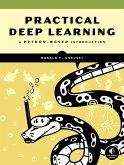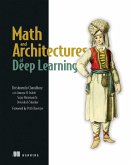An Introduction to Universal Artificial Intelligence provides the formal underpinning of what it means for an agent to act intelligently in an unknown environment. First presented in Universal Algorithmic Intelligence (Hutter, 2000), UAI offers a framework in which virtually all AI problems can be formulated, and a theory of how to solve them. UAI unifies ideas from sequential decision theory, Bayesian inference, and algorithmic information theory to construct AIXI, an optimal reinforcement learning agent that learns to act optimally in unknown environments. AIXI is the theoretical gold standard for intelligent behavior.
The book covers both the theoretical and practical aspects of UAI. Bayesian updating can be done efficiently with context tree weighting, and planning can be approximated by sampling with Monte Carlo tree search. It provides algorithms for the reader to implement, and experimental results to compare against. These algorithms are used to approximate AIXI. The book ends with a philosophical discussion of Artificial General Intelligence: Can super-intelligent agents even be constructed? Is it inevitable that they will be constructed, and what are the potential consequences?
This text is suitable for late undergraduate students. It provides an extensive chapter to fill in the required mathematics, probability, information, and computability theory background. You can also visit the author website: http://www.hutter1.net/ai/uaibook2.htm.
The book covers both the theoretical and practical aspects of UAI. Bayesian updating can be done efficiently with context tree weighting, and planning can be approximated by sampling with Monte Carlo tree search. It provides algorithms for the reader to implement, and experimental results to compare against. These algorithms are used to approximate AIXI. The book ends with a philosophical discussion of Artificial General Intelligence: Can super-intelligent agents even be constructed? Is it inevitable that they will be constructed, and what are the potential consequences?
This text is suitable for late undergraduate students. It provides an extensive chapter to fill in the required mathematics, probability, information, and computability theory background. You can also visit the author website: http://www.hutter1.net/ai/uaibook2.htm.
"Is it possible to mathematically define and study artificial superintelligence? If that sounds like an interesting question, then this is definitely the book for you. Starting with probability theory, complexity theory and sequence prediction, it takes you right through to the safety of superintelligent machines."
- Shane Legg, co-founder of DeepMind
"This is seminal work!"
- Roman Yampolskiy, Tenured Associate Professor at the University of Louisville, USA
"This is an important, timely, high-quality book by highly respected authors."
- Jürgen Schmidhuber, Director of the AI Initiative at King Abdullah University of Science and Technology, Scientific Director at the Swiss AI Lab IDSIA, Co-Founder & Chief Scientist at NNAISENSE
"Clearly very strongly based on mathematical foundations. This offers a theoretical depth which will be of value in research, education (at an appropriate level), and for advanced practitioners."
- Alan Dix, Director of the Computational Foundry at Swansea University and Professorial Fellow at Cardiff Metropolitan University
- Shane Legg, co-founder of DeepMind
"This is seminal work!"
- Roman Yampolskiy, Tenured Associate Professor at the University of Louisville, USA
"This is an important, timely, high-quality book by highly respected authors."
- Jürgen Schmidhuber, Director of the AI Initiative at King Abdullah University of Science and Technology, Scientific Director at the Swiss AI Lab IDSIA, Co-Founder & Chief Scientist at NNAISENSE
"Clearly very strongly based on mathematical foundations. This offers a theoretical depth which will be of value in research, education (at an appropriate level), and for advanced practitioners."
- Alan Dix, Director of the Computational Foundry at Swansea University and Professorial Fellow at Cardiff Metropolitan University

